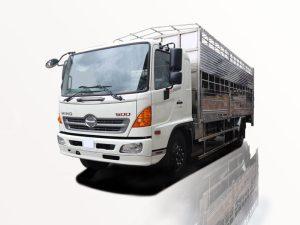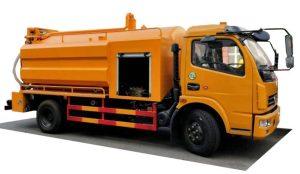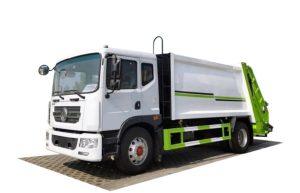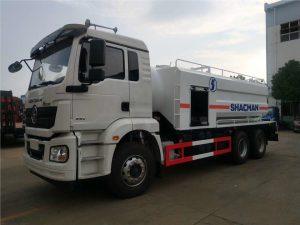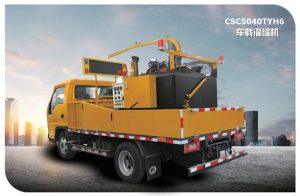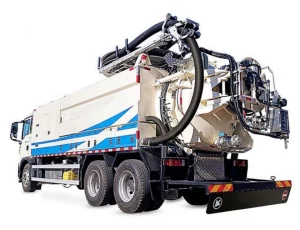Monday to Saturday - 8:00 -17:30
Understanding Concrete Truck Weight: A Comprehensive Guide
Concrete trucks are a fundamental part of the construction industry, transporting thousands of pounds of concrete from batching plants to job sites. One crucial aspect that concerns both contractors and clients is the weight of these trucks. In this article, we will delve into various aspects of concrete truck weight, its implications, and all you need to know to make informed decisions during your construction projects.
What is Concrete Truck Weight?
The weight of a concrete truck refers to the total mass of the vehicle when fully loaded with concrete. This weight depends on several factors, including the truck’s size, design, and the amount of concrete it carries. Understanding the weight is not only essential for logistical purposes but also affects compliance with local laws regarding road weight limits.
Types of Concrete Trucks
There are several types of concrete trucks, each with varying weights:
- Ready-Mix Concrete Trucks: These trucks typically hold between 8 to 12 cubic yards of concrete, with an average weight ranging from 26,000 to 32,000 pounds when fully loaded.
- Volumetric Concrete Mixers: Their weight varies from 10,000 to 40,000 pounds when unloaded, with a capacity of mixing concrete on-site.
- Dump Trucks: While primarily used for transporting aggregate, they can also carry concrete, weighing around 27,000 to 30,000 pounds empty.
Factors Affecting Concrete Truck Weight
1. Truck Design and Model
Different models of concrete trucks are built with varied materials and designs, which can influence their weight. Advanced models may use lightweight materials to optimize payload capacity.
2. Amount of Concrete Cooled
The total weight of a concrete truck increases with the amount of concrete loaded. Each cubic yard of concrete weighs approximately 4,000 to 4,500 pounds, so understanding how many cubic yards your truck can carry is essential.
3. Water and Additives
The mix can include additives and water, which can increase the overall weight. Water at 8.34 pounds per gallon and various chemical admixtures may add significant weight to a fully loaded truck.
4. Cargo Configuration
The arrangement of payload also affects the truck’s weight distribution and may have implications for stability and handling during transport.
5. Regulations and Compliance
Weight limits imposed by local authorities can influence how much concrete a truck can legally carry. It’s essential to understand these regulations to avoid fines and operational issues.
Calculating the Weight of a Concrete Truck
Understanding the Basics
The calculation of a concrete truck’s weight incorporates the truck’s base weight and the weight of the concrete loaded. Here’s a simplified formula:
Total Weight = Truck’s Curb Weight + (Cubic Yards of Concrete × Average Weight of Concrete per Cubic Yard)
Example Calculation
If a ready-mix truck has a curb weight of 20,000 pounds and carries 10 cubic yards of concrete:
- Average weight = 4,000 pounds/cubic yard
- Total concrete weight = 10 × 4,000 = 40,000 pounds
- Total weight = 20,000 + 40,000 = 60,000 pounds
Common Weight Limits for Concrete Trucks
Most states impose specific weight limits for commercial vehicles, including concrete trucks. These limits can differ based on vehicle configuration, number of axles, and state laws. Below is a general guideline:
| Truck Configuration | Maximum Weight Limit (Pounds) |
|---|---|
| Single Axle Truck | 20,000 |
| Tandem Axle Truck | 34,000 |
| Tridem Axle Truck | 42,000 |
| Five Axles Truck | 80,000 |
Practical Tips for Managing Concrete Truck Weight
1. Weigh the Truck Before Loading
Weighing your empty truck ensures you have an accurate starting point. It can avoid potential legal issues after loading.
2. Keep Accurate Records
3. Seek Professional Guidance
Consult with professionals who have experience in transporting concrete. They can provide insights into weight management and compliance with regulations.
4. Invest in Scales
On-site weighing scales can be a worthwhile investment for frequent users, allowing for quick assessments of truck weight without the need to travel to a weigh station.
5. Understand Local Regulations
Regularly review local weight limit regulations to ensure compliance and avoid penalties.
Safety Considerations Related to Concrete Truck Weight
1. Overloading Risks
Exceeding the truck’s weight limit can lead to accidents, gear wear, and legal repercussions. Safety should always come first.
2. Load Distribution
Improper load distribution can affect vehicle stability. Always ensure that the concrete is evenly distributed to maintain balance.
3. Proper Maintenance
Maintaining your truck’s brakes and tires, especially under heavy loads, ensures safer transport of concrete and reduces the risk of failure while on the road.
Environmental Impacts of Concrete Truck Operations
1. Emissions
Heavy concrete trucks contribute to greenhouse gas emissions. Operators can reduce their carbon footprint by considering fuel-efficient routes and maintenance practices.
2. Waste Management
Proper disposal of excess concrete is essential to avoid environmental contamination. Find local solutions for managing concrete waste responsibly.
3. Resource Management
Choosing to source concrete from local suppliers can reduce transportation distances and reduce overall emissions associated with concrete truck operations.
Frequently Asked Questions (FAQ)
1. What is the average weight of a ready-mix concrete truck?
The average weight of a ready-mix concrete truck is between 26,000 to 32,000 pounds when fully loaded with concrete.
2. Can I overload a concrete truck for a larger delivery?
No, overloading a concrete truck can lead to serious safety hazards, legal issues, and damage to the vehicle. Always adhere to weight regulations.
3. How do I know if my concrete truck is too heavy?
Weighing the truck before and after loading is essential. If the total weight exceeds local regulations, you may need to reduce the load.
4. What factors can increase the weight of my concrete mix?
Factors such as the addition of water, admixtures, and the specific mix design can all contribute to increased weight.
5. Are there penalties for exceeding concrete truck weight limits?
Yes, exceeding weight limits can result in fines, vehicle impoundment, and serious liability issues in case of accidents.
6. What should I do to reduce the environmental impact of concrete trucks?
Consider optimizing routes, investing in cleaner technologies, and ensuring proper waste management of excess concrete to minimize environmental impact.


